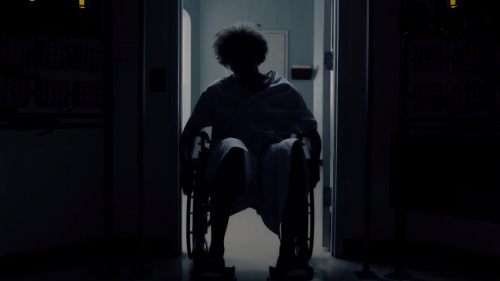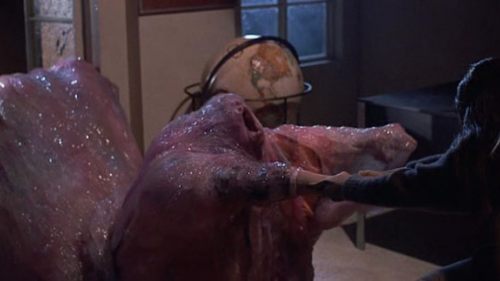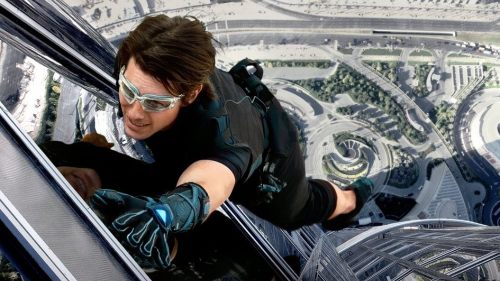Sunday Reads: Hail To The Knope
This post was originally published in 2015.
In 2015 we said goodbye to Leslie Knope, and to the rest of the small, strange town of Pawnee, Indiana. Greg Daniels and Mike Schur’s Parks and Recreation created a stable of lovable, nuanced characters whose absence from the TV landscape will be keenly felt - who could have imagined that Jerry or Donna would be revealed as complex and surprising human beings when we first met them in Season One? - but none has been as vital, as badly needed, as Leslie Knope.
Of course, Amy Poehler’s Leslie Knope didn’t start out as particularly vital. In the early episodes of Season One, we saw some of the qualities that make her great: her enthusiasm and commitment, her kindness and her desire to do good. But early Leslie Knope was no more competent than your typical low-level bureaucrat, and her co-workers treated her with scarcely concealed disdain. A good 50% of her character was devoted to her crush on Paul Schneider’s Mark Brendanawicz, to whom she meant so little that he couldn’t even remember a night they’d spent together five years previously, a night Leslie was still cherishing with girlish fidelity.
Season One of Parks and Recreation was little-seen and littler-loved; its second season renewal was something of a surprise. Poehler herself said in her memoirs Yes Please:
We almost didn’t make it. That first year was rough. Critics compared us to The Office, and not kindly. Our ratings were okay but not great. Deadline Hollywood decided to publish our pilot testing results, which was basically like having someone publish the worst parts of your diary. According to testing, a lot of people liked it when ‘that Parks lady fell into the pit.’ It wasn’t a good sign when people wanted the show’s lead character to fall into a hole. We regrouped.
By the Season One finale - in which Leslie coolly rejects a drunk Brendanawicz’s advances - something had changed in Leslie Knope, and by proxy, in Parks and Rec. Gone was the hapless woman desperate for approval and determined to barrel her way into the “boys’ club” of government, and here was an accomplished, indomitable force in a club of her own choosing, along with the women framed in portraits hung in her office: Hillary Rodham Clinton, Madeleine Albright, Nancy Pelosi.
And in the first moments of Season Two, the final obstacle to Leslie’s ascendancy fell away. Ron enters her office and makes the mistake of opening his news with, “Okay, here’s the situation,” leading Leslie to run away with the rest of the lyrics to DJ Jazzy Jeff and The Fresh Prince’s “Parents Just Don’t Understand.” As Ron patiently waits for her to finish, she’s running around the office, rapping to her co-workers, as goofy and energetic as ever - but here’s the difference: they’re loving it. Donna, Jerry, Tom, even April are grinning and nodding their heads along with her, impressed with her performance.
This is the Leslie Knope we know and love: annoying, sure - she’ll always be that. But fun, and lovable, and capable of winning over the most jaded of co-workers. By the tenth episode of Season Two, “Hunting Trip,” Leslie’s not just in the boys’ club, she’s running it. ("Men enjoy it when a woman is better than them at something they love.") By Season Four, Episode Four, “The Pawnee Goddesses,” the boys are clamoring to join her club. She grew from the pilot's female Michael Scott into a brilliant and irrepressible workplace star.
But Leslie is so much more than a badass professional. She is, above all else, a wonderful friend. The kind of friend we should all aspire to be: considerate, encouraging, tireless, generous. Possibly too generous: her boundless energy lends itself to creating thoughtful gifts at an almost intimidating rate. She'll cross-stitch your face on a pillow; she'll rent the Iron Throne for you; she'll make and frame a gold record of your band's first album; she'll paint a picture of you decapitating the Black Eyed Peas. She develops an "enormous emotional debt...built up over years of this gift-giving imbalance," but she'll never need or expect you to pay the deficit.
And she'll do it all with a clear-eyed appreciation for your true self. An Ann Perkins birthday party entails sombreros, mariachis, balloons, a bouncy castle, face painting. A Ron Swanson birthday party is a locked, solitary room, DVDs of The Bridge on the River Kwai and The Dirty Dozen, a rare steak and a bottle of Scotch. After all, why would she throw Ron Swanson an Ann Perkins party?
Though Amy Poehler has only written four episodes of Parks and Recreation ("Telethon," "The Fight," "The Debate" and "Second Chunce"), the powerhouse woman has informed her powerhouse character in immeasurable ways. In his chapter in Yes Please, Mike Schur gives the following example of her influence on Leslie Knope:
Characters on mockumentary shows look at the camera for different reasons. For Michael Scott, it would be because he had just done something humiliating and then suddenly remembered that there were cameras there - his looks were often conveying: "Uh-oh." Ben Wyatt (like Jim Halpert from The Office) often looks to camera as a plea, like "Can you believe what I have to deal with?" Andy Dwyer looks to camera like it's his best friend and he wants to share how awesome something is. And so on. My point is that when we created the character of Leslie, we imagined that her relationship to the camera was one of guarded caution - she had political aspirations, and people with political aspirations both (a) like being on camera but are also (b) acutely aware that one slipup or inappropriate recorded moment can ruin their careers. In the beginning, Leslie had that cautious relationship with the cameras, but as time went on, Amy just kind of stopped looking at them. Amy and I never really discussed this, nor was it a conscious decision on the part of the writing staff - it just kind of stopped happening. I thought about why it was happening toward the end of Season 2, and I realized that Leslie had evolved into a character for whom there was no difference in her private and public thoughts, motives, or feelings. Amy had made her into a completely consistent, heart-on-her-sleeve character who was not embarrassed or ashamed by anything she ever said or did in any scenario. I remember thinking that was great, and from that moment on I used that as a North Star for writing Leslie - it became a mission statement that we would never write a story that involved her being ashamed of how she felt. It's a pretty badass character trait, I think, and it only works because of the supreme sincerity of the actress who embodies it.
In fact, Yes Please, published during Season 6 of Parks and Recreation, seems to have informed some of the final episodes of the series. In the chapter "Every Mother Needs A Wife," she talks about her reliance on and unmitigated appreciation for her nannies, saying, "They have made me feel better about working so hard because they work hard too. They are wonderful teachers and caretakers and my children's lives are richer because they are part of our family." This open appreciation makes its way into a brief, lovely scene in the Season 7 episode "Donna and Joe," in which Leslie tells her nanny, played by Poehler pal Rachel Dratch, "You are a wonderful nanny. You're tough, and strong, and you're an excellent caretaker for our children." In the same chapter, Poehler writes that her motto for mothering is "Good for you, not for me," speaking to the need for mothers to stop passing judgment on one another for different parenting approaches, a philosophy that surely influenced this month's episode "Pie-Mary."
"Good for you, not for me." Leslie Knope is, in every word, thought and action, a feminist. And she's the kind of feminist we should all be: unequivocal, nonjudgmental and incredibly supportive of other women. Much of the success garnered by April, Donna and Ann in Parks and Recreation is not without assistance from an indefatigable Leslie, who uses Galentine's Day, career binders and a fierce, unflagging devotion to help her fellow women get ahead as she drives forward, herself.
And it is only in her support of the women she loves and admires that Leslie is nonjudgmental. Leslie is certainly not perfect; she wouldn't be anywhere near as resonant a character if she were. She is judgmental, though quick to grow from her rash opinions. She is hot-tempered, though quick to both contrition and forgiveness. She is impatient, especially with incompetence and apathy, but her loyalty is dogged and enduring. Yes, she is flawed, but her flaws are like those you would offer an interviewer you'd like to impress when asked about your weaknesses: she works too hard, she cares too much. Sen. John McCain is not wrong when he tells her, "Did anyone ever tell you that your tenacity can be intimidating," and Leslie replies, smiling and sure, "Yes, every month of my life since fourth grade."
She is driven by her own "blind, stubborn belief that what [she is] doing is 100% right," and while that belief has gotten her into countless scrapes over the seven years we've been in her orbit, it is also what makes her Leslie Knope. It is a quality that all heroes possess, and that most people lack: conviction. And conviction met with kindness makes for the most beautiful sort of unstoppable. Leslie Knope is a reminder that sometimes the strongest, most interesting and most surprising thing we can be is nice. She makes it cool to be kind, to be organized and responsible and prepared and passionate. Leslie Knope makes it cool to care more than the other guy.
And even if we didn't see all of this in the first few episodes of Parks and Recreation, the most significant part of what makes Leslie Knope Leslie Knope is there from the very beginning, as she vows to turn a pit into a park, a promise she makes to the woman who will become her lifelong friend. As Schur says in Yes Please, "It's so interesting to think about it this way, now, as we near the end - it was, at the beginning, really that simple: a woman who wanted to make something out of nothing."
In the pilot, once Leslie is granted - after relentless badgering of her ideological opposite and partner in deep respect Ron Swanson - a committee to turn that nothing into something, she tells the camera, "I'm barely 34,and I've already landed a Parks Department exploratory subcommittee. I'm a rocket ship." We may have laughed then, but now we know better. She really was a rocket ship.



